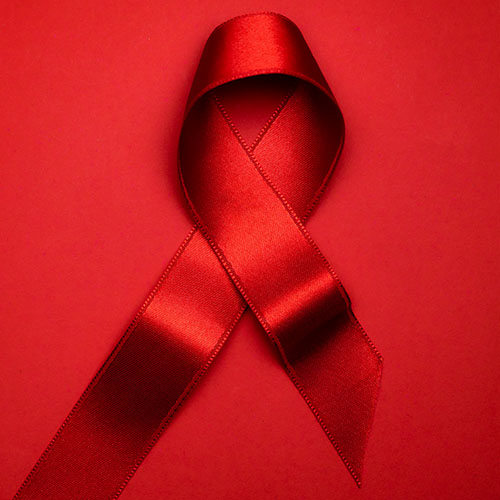I often say that in every man’s life comes a wave that, if taken at its crest, will lead to success. That’s a slight corruption of Shakespeare but still, I think, accurate. In other words, you have to ride the wild surf.
Kevorkian: Dr. Death
Now, I wasn’t thinking about that the day Jack Kevorkian and his sister first came over to my law office. I wasn’t even supposed to be there that day. For one thing, it was a Sunday in August 1990, and I was wearing a tuxedo top, blue jeans, and cowboy boots. My wife Keenie and I had gone to watch a polo match about a mile away. That was the only time in my life I had ever seen polo — and it was fucking hot. Michigan in August — you can’t imagine how hot it was. Finally, I couldn’t stand it anymore. So we went there to cool down, the phone rang, and it was Jack Kevorkian.
“I don’t think I know what I am doing,” he said. That was two months after he’d helped Janet Adkins commit suicide because she didn’t want to face years as a mindless vegetable due to Alzheimer’s disease. She was the first, and Jack never, ever expected the reaction he got. He didn’t think that anyone would even care much. He just figured that it was logical. So he went home — and there was an explosion!
The news media of the world were at his door, the lunatics were hollering for his head, and he realized he needed a lawyer. He had heard about me because of some headline-making malpractice cases I had won. I told him to come on over, and he did within the hour.
Now, I’m a smart guy. But while I consider myself pretty perceptive, the issue of the freedom involved in assisted suicide was never at the top of my agenda of things to think about. It wasn’t a question of right or wrong. Of course I would have said that those who are terminally ill or otherwise suffering irremediable pain have the right to determine their own fate. My parents were both big civil libertarians. My dad, Bernie Fieger, was a Harvard-educated lawyer who went down to Mississippi to help fight for civil rights when doing so was really dangerous. My mom, June, was a teachers’ union organizer.
But death isn’t something I cared to dwell on as a human being because, well… because I don’t want to die. I love living and I am terribly afraid of dying — at least at this point in my life.
Then one day Jack Kevorkian walked into my office, this little man, modestly dressed, with his sister Margo, two very unassuming people, and suddenly the issue came into focus — what I now know is the civil rights issue of the nineties.
I realized very early on the true nature of Kevorkian’s opponents, who are, essentially, religious fanatics. That accounts for the viciousness of it, too. Deeply ingrained in religion is the sense that you must absoluteIy eliminate those who oppose you. The people who are after Jack are religious fanatics and radical statists — people who believe government has the right to make you suffer and who cite historical tenets to support that proposition. Before that I thought, Well, if, God forbid, I ever need something like that option — help getting out of this world — it would always be available. I didn’t really understand that not only was it not available, but these same religious lunatics who have done so much to take away the right of women to control their own bodies and who are now assassinating doctors — these are the same people who want to stop Jack Kevorkian.
This isn’t about the right to die, by the way. It’s about the right not to suffer. I realized all that very early on. I can’t say whether it was before I started representing Jack or very soon after, but early. Plus, I knew that it was an interesting and important case. There was no prospect of making money, but the issue of compensation was almost trivial compared to the importance of the issue.
I like things to be interesting. I don’t like my life to be boring. I never wanted to be a lawyer, by the way — never ever. I wanted to be a football player, then an actor. I bummed around, got a master’s in theater from the University of Michigan, and had a prolonged adolescence. And then one day, I tried law school. It was like trying a food you never knew you liked — and bam!
That Sunday in August, I had no idea where this thing would go …. No idea that Jack Kevorkian would end up becoming one of my best friends, or that he would become the most famous doctor in the world, or that I — his counsel, for Christ’s sake — would wind up being a target of an investigation launched by a really superevil county prosecutor named Richard Thompson, an Armenian-American like Jack, but one who changed his name.
All that was still ahead.
I didn’t immediately think about my dad when I first met Jack Kevorkian… nor about the way he died.
I remember the last time he was really even able to talk. He asked me to go get him a milk shake from Mc Donald’s. I brought it back to him, and he said, “I feel terrible — I feel sick all over, Geoffrey. I just feel so sick.” And he began to cry.
That made me angry, because I felt he had never taken care of his diabetes. This was in August 1988. He wasn’t very old — 66 — and he shouldn’t have been dying. He was a man who could never express his emotions.
But there was one thing in his life that would cheer him up, and that was eating. And whenever I’d attempted to mediate and stop him from eating and drinking all sorts of things that were bad for him because of his diabetes, he would scream at me, “This is the way I want to live my life!”
It was really vicious. I can’t even count how many fights we had over that. We fought over everything, especially after I joined him in the law firm he’d founded, now Fieger, Fieger & Schwartz — cases, everything — it was just the way we communicated with each other.
Bernard J. Fieger had a hard time giving praise. I could say, “Dad, I won a case for $5 million this morning,” and he’d say, “Well, what have you done this afternoon?”
But what I wanted to say to him that day when he was crying in pain was, “Well, yeah, but how about all the times I told you to take care of yourself, and you wouldn’t!” But I just gave him the milk shake, and the next day he fell into a septic coma.
Days went by. I would shake him, I would wash his face with a cold washcloth and try to rouse him so I could say, “You know, Dad, I love you. I just want you to know that I love you.”
I remember him once telling me — he would have just a few seconds of consciousness — “Let me go, Geoff. Let me go.” Those were the last words he ever said to me, just one day before he died.
That was almost exactly two years to the day before I met Jack Kevorkian in the law office that my dad founded in the Detroit suburb of Southfield.
Now, I realize that there is a slight similarity between them — but Jack Kevorkian is really not like my dad. Although he’s only six years younger, he’s much more down-to-earth. He’s much more able to express his feelings about a lot of things. He’s able to admit when he’s wrong, and he’s able to apologize.
The way in which he most resembles my father is his rigidness. When Jack gets nervous or upset, he becomes so rigid you can’t reach him, nothing can make any sense. He fired me once — briefly — and there have been a couple of times when I wanted to strangle him! I wanted to quit!
But when he calms down, he always sees the right way, because he’s got a heart. Whenever he has been an asshole to me, he always comes back and says, “I’m sorry.” That’s a nice quality he has — one of many.
You’d never get a sense of what Jack Kevorkian is really like from the media, so let me tell you about him. I think I know more than anybody knows about him — objectively, that is. Maybe his sister, Margo Janus, knows him better, but she is so subjective she could never give an adequate portrayal. Jack is very, very bright, he’s very forthright, he’s very personable. From the very first, I felt I could get along with him. He has insights into a lot of things — from baseball to women to politics — and I like that, because I certainly like talking about things other than assisted suicide. Probably the best quality he has is his utter naivete. Like most great men, he is childlike in a sense. He has an impish sense of wonderment.
Of course, Jack’s also very different from most people. He’s clearly a zealot intensely committed to this issue, but his zealousness is vindicated by the rightness of his position. He is the Obi-Wan Kenobi of assisted suicide.
Most of the people he counsels don’t commit suicide, by the way. Far more patients have gone on and died naturally. He provides emotional solace for them because he gives them a sense of control over their own life and death. The most fearful thing to most people is losing control. But Jack’s patients, even if they have personally lost control, know that through Jack their destiny is still within their power, and that makes them go on to the end.
I’ve been asked if it ever crossed my mind that Jack might be nuts. Jack is nuts only in the sense that any great people who are totally devoted to anything are nuts.
You know, I was told in college that track stars used to stay up at night shaving every little excess piece of rubber they could from their sneakers to make them as light as possible. Swimmers have been known to shave off all their body hair, lest it slow them down a millisecond. That’s probably craziness, you know — dedication to the extreme — but not insanity.
If Jack had really been crazy — eyeballs rolling around in his head, babbling — I probably would have tried to see if I could control the situation, and then I would have said, “Fuck him! I’m going to get in trouble here.” I would have backed off.
Absolutely. I’m such a controlling son of a bitch that unless I thought I could ultimately control the situation, I wouldn’t have gotten involved — control the public arena, that is. The biggest battles between Jack and me have been over my ability to control him in public. Medically, I can’t — and I don’t want to. He has to have a free hand to do whatever he wants to do medically because that’s his expertise.
He never tells me in advance when he is going to assist a suicide, and I would never presume to advise him on that. But he never understood that he could not explain the issue to the press or public because he is the issue! And when someone tries to be his own lawyer, he has a fool for a client.
Jack had very little understanding of that. He also thought he could convince his opponents, and he’s dead wrong on that one.
I think that Jack probably makes assessments about people similarly to the way I do. I feel things about people. I’m not saying that I may not learn later I made a mistake, all I’m saying is that if I feel bad about them right away, they don’t get past me. I’m not diplomatic, either. When I don’t feel right about them, they don’t get a second chance.
But Jack’s a lot more vulnerable than I am. I have a self-protective instinct. Jack was ripe to be taken advantage of when this started because he’s a very wise person with less common sense than wisdom.
Now, there was nothing really in his life to take advantage of before all this started. This is a man who lives an entirely Spartan life, who is still, today, proud of the fact that he can go get three clip-on ties for a dollar — and say they look great.
He cuts his own hair because he grew tired of getting barbers to do it to his liking. He is also penurious, and he is proud of it. He has no desire to be wealthy, but he is pleased when he can buy something for exceedingly low cost that is of good value at the Salvation Army; proud that he can get three pairs of rubber-soled shoes for $10. He really is the nutty professor — but with a real brain on his shoulders.
“Why not, thought Jack Kevorkian, transfuse blood out of some cadavers? It’s just as good! The Dead don’t need it anymore.”
When he was a pathologist at Pontiac General Hospital, he lived on Otter Lake, and he made a floating bicycle on pontoons with a chain-driven propeller that he often drove across the lake — daring boaters to attempt to swamp him with their wake! Another time he wrote and illustrated a diet book — a good one, too. He still maintains his weight according to the principles in that book.
He also developed an idea for paper-hat sun visors that would have an insignia on them, like for the Detroit Lions football team. He had the idea that he would sell these at all the football games and that 50,000 people would buy them. And they were great — I’ve seen the prototypes and they were just brilliant. …The only problem was, Jack didn’t realize that Detroit Lions fans don’t need sun visors …the team plays inside!
That’s Jack Kevorkian.
His interests and talents are amazingly diverse. He loves music — baroque and big-band. He is entirely self-taught, and he even composed an organ sonata. At one point in the seventies, he left the medical profession and went to California to make a mediocre movie of Handel’s Messiah. He was doing a film adaptation, but it got lost with all his writings and paintings when he moved back to Michigan. They were all in a huge crate, and the freight company lost it.
We’re suing them, by the way.
He painted for a while — he’s an excellent artist — but he’s stopped creating “philosophical surrealism,” depicting disease, suicide, and death, and he won’t do it anymore. I’ve asked him to re-create his paintings — they’d be worth a fortune — but he just won’t do it.
I have to say that part of his success has to do with my representation of him. Nobody could, or would, do what I’ve done for him. Oh, many other lawyers have tried to get hold of him and have urged him to fire me and hire them. They’d represent Jack, but they wouldn’t do what I’ve done for him, which is to put my life on the line, also. Nobody could do what I’ve been willing to do for Jack. You know why? Because they are basically cowards. Lawyers, like doctors, tend to be the most incredibly cowardly people. They are in practice to make money, to have a nice family, not to rock the boat.
I am in a unique position, similar to Jack’s in this respect: We are mavericks in professions dominated by mealy-mouthed equivocators.
What very few people know is that this didn’t come out of the blue. There was a logical progression that led up to Jack inventing his mercy device.
First of all, he was one of those guys who never had to fully apply himself because he was so innately intelligent. His decision to go into pathology came, I think, out of the fact that pathology is the most broad-based of all the medical specialties. It’s the one part of medical science that has its fingers in everything, including research labs.
Why do you think they do autopsies? It’s for the living, not for the fucking dead! You need pathologists to diagnose disease. Pathologists are integrally related to life. Jack Kevorkian is interested in everything — that’s why he picked pathology.
Now, Jack has an impish quality, and he is absolutely indomitable and unconquerable in this: He has an almost mischievous disrespect for authority. He is stubborn, and I think he was spoiled by his mother and sisters — he was the only boy. He’s also selfish in the sense that he knows what he wants and he doesn’t compromise — I think that’s why he never got married.
I think Jack is the type of guy who was always curious about taboos. Because he was a doctor, he got exposed to medical taboos — and medicine is full of taboos.
That leads, by the way, to another thing I didn’t understand at first. Medicine has never been able to separate itself from religion. And that is the reason why there is a problem with both abortion and assisted suicide. Historically, religion has been interwoven with medicine. And thus you have the study of medical ethics, in which a significant percentage of ethicists are not doctors at all, they are theologians — witch doctors and shamans telling us what not to do!
Now, I’m not indicting or impugning medical ethics or theological dogma, in and of themselves. However, the root of the problem is that they have been inextricably linked throughout history. Think about it this way: It makes about as much sense (or nonsense) to have theologians set medical ethics as it would for doctors to determine religious teachings. One expertise does not translate into competence in the other.
Yet why, then, are religious personages allowed to have such fundamental input into medical ethics? Why not allow them to control the ethics of architects or have architects set the tenets of religion?
Ridiculous, isn’t it?
Jack ran right up against those medical-religious taboos from the start. Why not, he thought, transfuse blood out of some cadavers? It’s just as good! The dead don’t need it anymore. Well, he did that and published some papers about it and became a pariah.
He has always been interested in transplanting organs, too. Very early in his career, he wrote a book that endorsed using condemned criminals for organ transplants. If they are going to die, why not let willing condemned men and women do something for medical science and an offended society? Well, that was another huge taboo.
He was controversial from the very beginning. That hurt him professionally, no doubt about it. I always say that what sets him apart from other doctors is his courage. The medical profession celebrates Professor Caspar Milquetoast — the guy who makes no waves about anything. These are the shamans of today.
So when Jack came back to Michigan from California in the mid-eighties, he couldn’t get a job. Then in 1989 he heard about a man named David Rivlin who lived in Oakland County, north of Detroit, where Jack and I live. A very intelligent guy. He was 38, he had broken his neck in a surfing accident, and, as a result, he’d lost all movement below his neck. He was a quadriplegic, and in order to breathe, he had a respirator attached to a tube in his neck.
A dreadful life for David. He had already been living like that for 17 years, and he went on television and said, “I don’t want to live like this anymore.” He wanted to die, and he asked for doctors to come forward and help him.
Kevorkian happened to be sitting there and saw him, and he thought, I should help this guy. But how can I do it? Because if I just go there and inject him, I’ll be guilty of murder. And he didn’t want to be convicted of murder.
So he thought about it. And because Kevorkian is an inventor, he came up with a method in which lethal drugs could be injected into the patient — but the process would be activated by the patient himself. Rivlin could hold pens and pencils in his mouth — hence, he could operate a suicide machine. Kevorkian developed it specifically for David Rivlin.
The way it works is that the physician hooks up a harmless, intravenous saline solution to the patient. When the person is ready, he or she pushes a button that switches the flow to thiopental, which induces a coma. A minute later potassium chloride is automatically added, which stops the patient’s heart.
Ironically, Rivlin never had to use it. Very shortly after he petitioned to have a doctor be allowed to disconnect him from the breathing mechanism, a judge ruled that there was no case in controversy. That was a very, very smart ruling — saying, in effect, “Nobody says they oppose you doing this.” The doctors who had been treating him sedated and disconnected him in July 1989, and that was that.
However, Jack had gone ahead and developed the suicide machine. So after that, he said, “Why not just make this available?” So he advertised it — in the newspaper! You might say that was undignified. If he had come to me and asked me if this was the appropriate thing to do, I would, of course, have said, “No way!”
But he is a lone wolf. A reporter saw the ad, went down and visited with him, and wrote a story about it. Then it got on the wires, and Phil Donahue called him. And at that point, Jack was more than willing to be on any show that called. He became the itinerant suicidemachine inventor, and he went on all the TV shows and demonstrated how it worked. They were making fun of him, but he didn’t understand that.
They weren’t interested in the real issue — they are now, because of what we have done. But in the beginning, they were only interested in making him a freak show. That’s why I had to step in — to deflect that so nobody could take advantage of Jack.
But it was lucky that he was willing to start out alone, because without his willingness to have done that, it never would have happened. Because that’s how Janet and Ron Adkins first learned about him — they saw him on TV, and Janet Adkins became the first person to use the suicide machine, on June 4, 1990.
After Janet Adkins, Jack didn’t help anybody die for well over a year, until Sherry Miller and Marjorie Wantz went together on October 23, 1991. Richard Thompson, a truly malignant and dangerous person, asked a grand jury to indict not only Jack, but me as well.
The grand jury did indict Jack, but not me. Being grouped with Kevorkian as a target actually made it easier to represent him with all my body and soul. But it kind of sent shivers up my spine to think, When they come and get me, who will be my standard-bearer? — Especially knowing that the law profession is made up of an incredible horde of poltroons, spiritless cowards.
Incidentally, Thompson also tried to indict Margo, Jack’s sister. That’s the infirm mentality of the fanatic at work — exterminate the infidel’s entire family.
The murder charges against Jack were thrown out of court, of course.
But the real change in our relationship came after the Hugh Gale case in February 1993 — it was then that we really became a team. The religious nuts went through Jack’s garbage afterward and found a document that they said indicated Gale wanted to stop the procedure, but Jack refused to let him change his mind.
That scared Jack because of the attack on his integrity. He was afraid that everything he had worked for would go down the drain; of the implication that he didn’t follow his own guidelines — very tough guidelines, by the way, which he has published — and ignored the cries of somebody begging him to stop. That would have impugned his integrity to the extent that everything would have been lost.
Well, in the end I forced the prosecutor to back off; this was in a different county, and the guy was more rational than Thompson. Jack, in his own wisdom, had been sitting in his home, his little apartment, writing medical documents that no one wanted to look at except him. He made a mistake — a simpleminded mistake, really — and he threw the old copies away after correcting the original with whiteout.
I had to be very forceful on that issue. And when it was all over, Jack said, “We’re a team. We’re in this together.” He understood we were more like a team and less like a lawyer and client.
He cannot go it alone. We are in this together, for better or worse. He compromises with me now. I’m one of the only men he’s ever compromised with in his life — perhaps because I’m one of the only persons who has fought him.
I really, genuinely love him, also. And I think he feels that.
Before the Gale case, I don’t think Jack ever really, truly understood what was going on — who was really after him, why they were really after him, and how he should approach it.
Now, of course, he does. What happened was, this issue came squarely against a Judea-Christian moral and religious ethic that’s so deeply ingrained in this country that the authorities, notwithstanding the separation of church and state, came down on him like a ton of bricks.
They misused the law, and I had to stand as his protector and fight off their scurrilous, unfounded, absolutely unjustified, illegal, and unconstitutional attacks. Jack was attempting to advance what to him was a rational, medical need — never charging or even agreeing to take a dime from the patients.
We’re dealing with something that shouldn’t be a legal or religious issue. It is truly a medical issue, but one that has to be fought on the legal battle-grounds because people in power can misuse their power, making up some phony arguments about societal interests — the same kind of phony constitution a I arguments now being made against abortion.
But we are going to win. And someday, if the Nobel Prize committee is smart, they’ll give it to him. He has done more for the advancement of a single issue in medicine than any living person.
I have — as you may have figured out by now — an ego. I’ve been asked if it bothers me that I may be remembered mainly for being associated with Jack Kevorkian, and the answer is, not at all. I can think of a lot worse ways to be remembered. Almost everybody goes to their grave never having done anything that means anything in life. The idea is that life should make an impact, that you should strive to do something that will have an effect on people who come after you….
And to the extent that I have made any impact on society for the good, this is it.
Some 20 years later, Jack Kevorkian remains a highly controversial topic. Somehow choosing to die on one’s own terms remains a decision that elicits either sympathy or fury depending upon … well, something inside of them. Then again, to some people “live and let live” seems like an unworkably radical concept. Presumably this is why we have politicians. That way they can be of great assistance to everybody. Don’t we all feel better? … Not that these two may be related topics, American Politics and consideration of assisted suicide, but resources have improved — a little — for people making life’s ultimate choice.
























